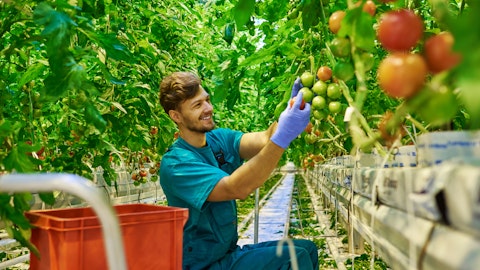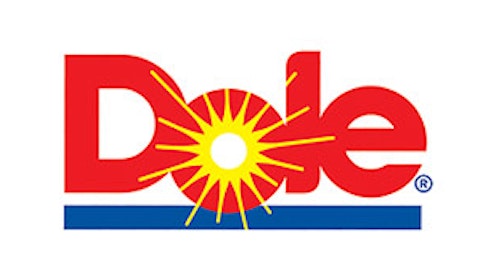Rory Byrne: And then just following on with our other couple of questions, Roland, I mean, on the cost environment, it’s very hard to call whether inflation has peaked or not peaked. We have seen this week, some of the European countries inflation rates were slightly down. But on the other hand, the U.K. rate of inflation was considerably up, but something like 45-year highs as you will know. So, I think, in some of our segments, we are seeing some easing of inflation, but it’s a little bit early to call. And in terms of the supply chain, I mean, obviously, at the end of the second quarter, we had some really significant strong impact because of port congestion that have an unfortunate and big impact on our Chilean grape business where ships were part of the ports for just too long to hold the quality of the fruit and discharge they were for supermarket programs and lots of knock-on consequences.
But we are seeing some easing of port congestion, particularly in some of the areas of the U.S. And then fuel is a little bit better, shipping if there are some evidence that shipping rates are maybe coming off their highs, but we have yet to see it come through in a material way. So it’s just — I mean, I think, supply chain is better than it has been, and hopefully, will settle down, and costs are, probably, a little too early to call whether we hit the peak or not.
Roland French: Okay. Great. And maybe just a quick follow-up, how seasonal is the Chilean grape business?
Rory Byrne: It’s very seasonal. I mean, it just runs for a number of months really from the early part of the year.
Roland French: Okay. Great. Thanks so much. Best of luck.
Rory Byrne: Thanks, Roland.
Operator: We now turn to Ben Bienvenu from Stephens. Your line is open.
Ben Bienvenu: Yeah. Thanks so much. Good morning.
Rory Byrne: Good morning, Ben.
Ben Bienvenu: I want to ask about the comments you made on pricing. You noted that you expect to make continued pricing increases as we move forward in Ontario. Are there categories in which you feel like you have more opportunity to take price versus others and what are you seeing so far the prospective consumer reaction to pricing increases you have taken?
Rory Byrne: Yeah. I mean, obviously, you look at our most important category being bananas and it’s starting from a low base. And so, I think, there’s a willingness to acknowledge cost increases, which can then get reflected in price increases to the consumer and there have been some ups and downs, as Johan described in terms of availability of supply. But I don’t think we are seeing any fundamental change in consumer demand. I think pricing in some of the other higher priced categories, you look at mangos, papayas, organics products like that can be a little bit harder to get through significant price increase without affecting somewhat demand in those categories. But we stand back from it, though, and we don’t, I mean, there can be ups and downs and it varies quite a bit across all our different markets, even within Europe there are different supply/demand and consumer demand.
If you look at Spain versus Sweden, Ireland versus Holland, it does vary a lot. But standing back from us, we do not see any fundamental shift in the consumer desire to ease high quality fruits and vegs that we supply.
Ben Bienvenu: Okay. Great. And then my second question is just related to M&A. Can you talk a little bit about what the environment offers you, are there particular opportunities that you are looking at that you are excited about or focused on and if you could kind of characterize the robustness of the pipeline that you have ahead of you, that would be helpful?




